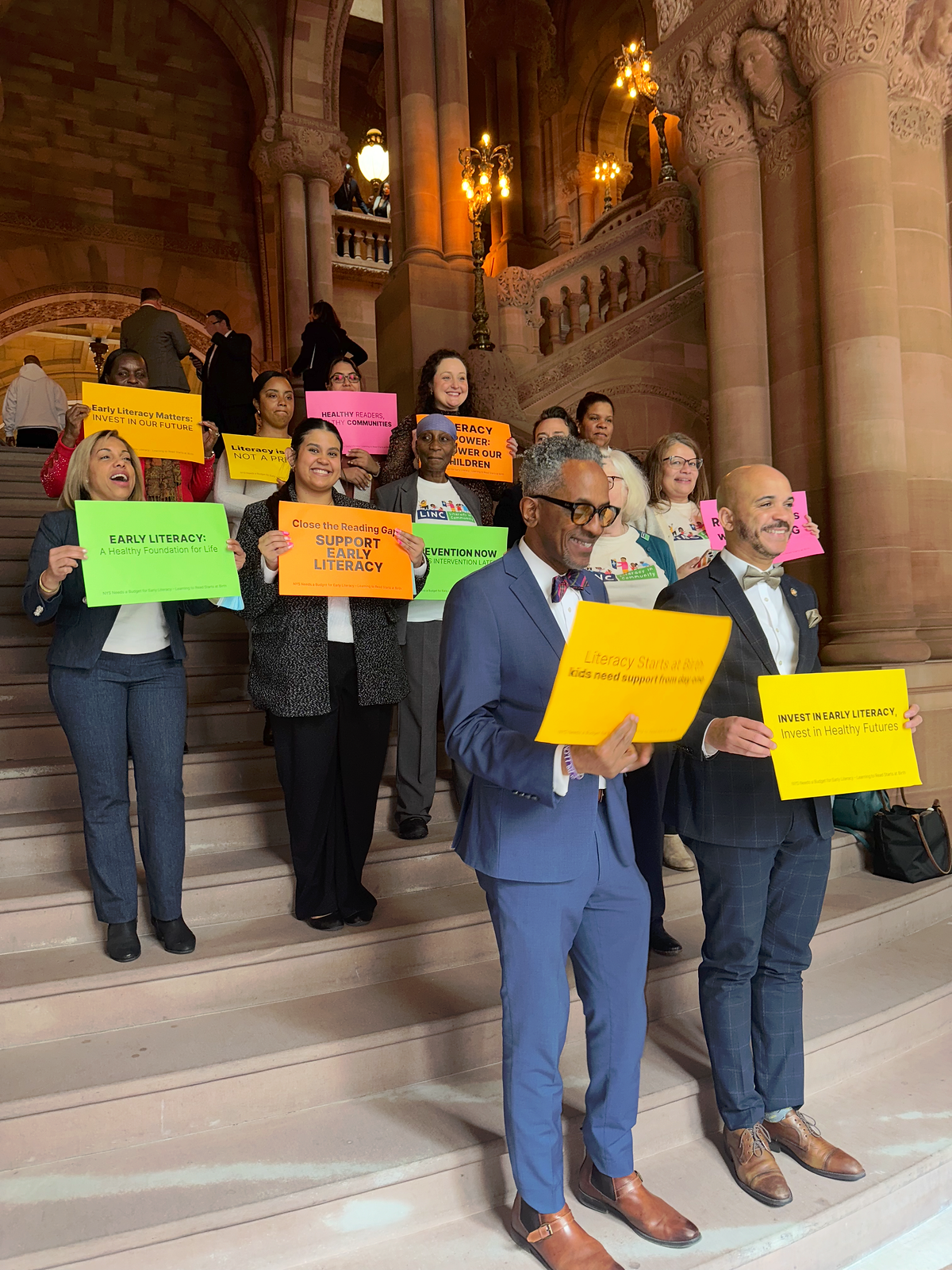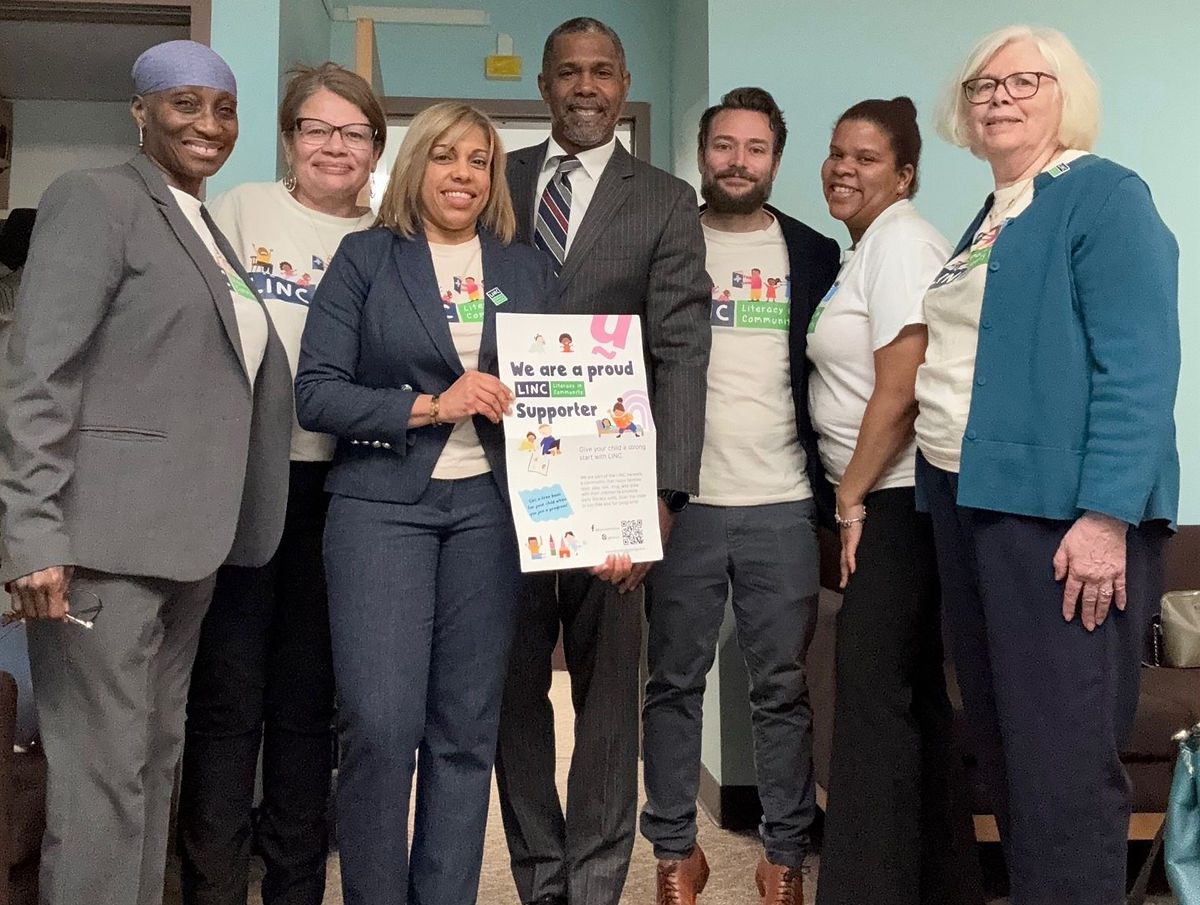Last week, members of the LINC Team donned their tee-shirts and headed to Albany to advocate for the creation of a line item in the state budget dedicated to early literacy. There are millions allocated for adult literacy, but shockingly, there is nothing specific to early childhood literacy.
They stood on the Million Dollar staircase, joined by Assemblymembers Manny De Los Santos and Al Taylor. They knocked on doors and buttonholed Senators and Assemblymembers outside of legislative chambers. They climbed up and down many, many staircases and walked the corridors of the Legislative Office Building – some 18,000 steps according to one team member’s fitness device.
All this marks the beginning of a campaign to move the needle on early literacy. Many, including those in educational institutions, continue to believe that learning to read begins in a classroom, with a teacher and a curriculum. But we know that learning to read begins at birth and the capacity to achieve proficiency in time to transition from “learning to read” to “reading to learn” rests on a foundation of healthy brain development.
The beginning years of a child’s life are crucial. 80% of a child’s brain develops in the first three years of life; by age five, 90% of the brain is developed. While often dismissed as child’s play, we now know that the stimulation provided by pre-reading activities is a key part of children’s healthy brain development; these activities are critically important. Both brain development and trust are essential factors in being ready for school and prepared for formal reading instruction. When children engage in pre-literacy activities like drawing, singing, imaginative play, and being talked with and read to by a trusted adult, they also develop the social and emotional connections they need to interact with the world. Quality early childhood programs not only provide these activities to children, they support parents and caregivers by imparting the knowledge and confidence needed to “do this at home” everyday with their children.

Changing the perception that learning to read begins in a classroom is going to be a long-term quest. Securing a budget line item is a critical first step.
Parents and caregivers respect their pediatric healthcare providers. When a doctor explains the importance of talking with or reading to very young children, the message is heard. When that clinic has an early literacy program that sends families home with a book, the chances that the doctor’s advice will be heeded increases. But often that’s where it stops. This initiative would build a pipeline of engagement between the medical setting and early literacy resources in a community – story hours in parks and libraries, for example. This continuum of programming makes literacy visible and valued throughout a community.
Those 18,000 steps each LINC staffer took last week are really just the first step in driving this change, which promises to improve school readiness across the Empire State.
For more information about LINC’s advocacy and collective impact efforts, please contact Emmanuel Novy at enovy@lincnyc.org.
